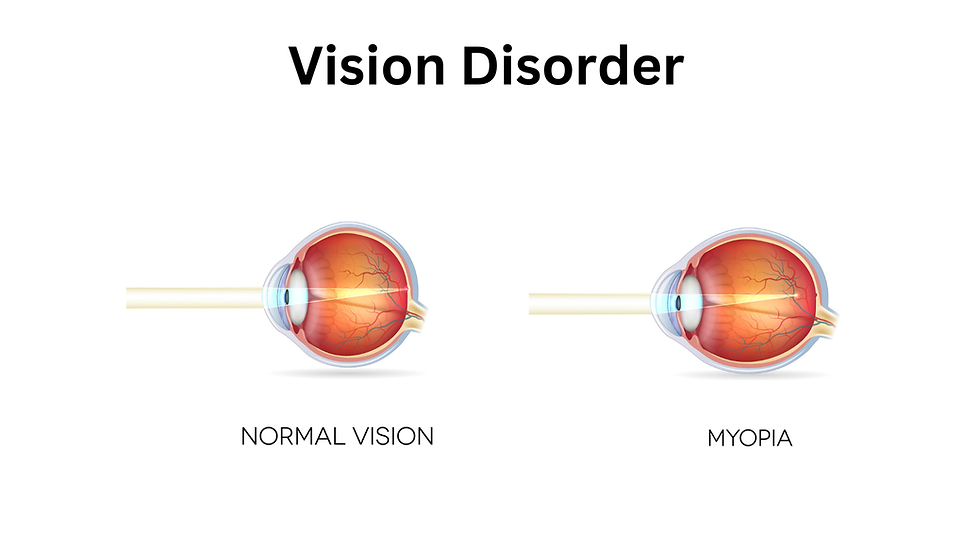Ways to Manage Diabetes for Healthy Vision Insights from an Eye Specialist
- visionopolisclinic
- Aug 27, 2025
- 2 min read
Diabetes doesn’t just affect your blood sugar—it silently impacts your entire body, especially your eyes. As eye specialists, we often see firsthand how uncontrolled diabetes can lead to serious vision complications, including diabetic retinopathy, macular edema, glaucoma, and early cataracts.
Why Diabetes Management is Crucial for Eye Health
Chronically high blood sugar levels damage the tiny blood vessels in the retina, leading to vision loss if left unchecked. This makes eye care a crucial part of diabetes management.
1. Control Your Blood Sugar Levels Consistently

Keeping blood glucose within a target range is the foundation of diabetes management. Fluctuating or high blood sugar damages the delicate capillaries in the eyes, increasing the risk of:
Diabetic retinopathy
Diabetic macular edema
Blurry vision due to lens swelling
Tips:
Monitor blood glucose regularly
Follow your doctor’s medication schedule
Avoid sudden spikes by eating balanced meals
2. Have a Diabetes-Friendly Diet
A healthy, balanced diet plays a major role in both blood sugar control and eye health. Foods rich in antioxidants, omega-3s, and low glycemic index (GI) carbohydrates support healthy eyes.
Include:
Leafy greens (spinach, kale)
Fatty fish (salmon, sardines)
Whole grains
Fresh fruits (in moderation)
Nuts and seeds
Avoid:
Sugary drinks and snacks
Processed foods
Refined carbs
3. Exercise Regularly to Improve Circulation

Regular physical activity improves insulin sensitivity, reduces blood sugar, and enhances blood flow to the retina—helping prevent damage from diabetic eye disease.
Aim for:
30 minutes a day, 5 times a week
Brisk walking, yoga, swimming, or cycling
4. Get Routine Eye Exams Every Year

As eye specialists, we stress this above all: regular eye checkups can catch problems before they affect your vision. Even if you have no symptoms, diabetes-related damage can begin silently.
What we check for:
Early signs of diabetic retinopathy
Macular swelling or fluid leakage
Changes in the optic nerve
Schedule a comprehensive dilated eye exam at least once a year.
5. Monitor Blood Pressure and Cholesterol
High blood pressure and bad cholesterol worsen the damage caused by diabetes in the retina’s blood vessels. Controlling these helps reduce the risk of:
Retinal bleeding
Macular edema
Hypertensive retinopathy
How to manage:
Take prescribed medications
Reduce salt intake
Avoid trans fats and fried foods
6. Quit Smoking—For Good

Smoking constricts blood vessels, damages the retina, and increases the risk of vision loss in diabetic patients. If you smoke and have diabetes, your risk of developing blindness is significantly higher.
7. Manage Stress to Maintain Stability
Chronic stress can raise cortisol and blood sugar levels, destabilize your diabetes and increasing your eye disease risk.
Try:
Deep breathing
Mindfulness meditation
Adequate sleep
Talking to a counsellor
Final Thoughts from an Eye Specialist
Managing diabetes isn’t just about medication—it’s about adopting a lifestyle that protects your whole body, especially your eyes. With the right steps, you can:
Prevent or delay diabetic eye diseases
Maintain clear, healthy vision
Improve your overall quality of life
🔍 Don’t wait until symptoms appear—make diabetes eye care a priority.






Comments